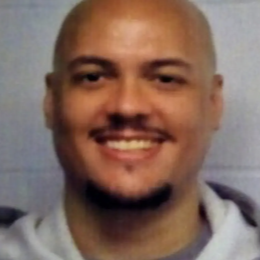
1980 - 2020
Christopher Andre Vialva
Summary
Name:
Years Active:
1999Birth:
May 10, 1980Status:
ExecutedClass:
MurdererVictims:
2Method:
Shooting / ArsonDeath:
September 24, 2020Nationality:
USA
1980 - 2020
Christopher Andre Vialva
Summary: Murderer
Name:
Christopher Andre VialvaStatus:
ExecutedVictims:
2Method:
Shooting / ArsonNationality:
USABirth:
May 10, 1980Death:
September 24, 2020Years Active:
1999Date Convicted:
June 13, 2000bio
Christopher Andre Vialva was born on 10 May 1980 in Killeen, Texas, to a white mother and an African-American father of Trinidadian descent. His parents met while both were in the U.S. military—his father a soldier, his mother an Air Force enlistee. Their relationship ended shortly after marriage, with Vialva’s mother raising him as a single parent after separating from her abusive husband.
His upbringing was fraught with isolation and instability. Vialva's maternal relatives reportedly disowned his mother for marrying a Black man, leaving the two socially and emotionally disconnected. His mother endured further abusive relationships, and many of her partners rejected young Christopher. These dynamics left Vialva struggling deeply with his sense of identity, especially as a biracial child in a racially divided environment.
Teachers and classmates described him as disruptive in school but not violent. As a teen, he gravitated toward street life and joined a gang known as the 212 Piru Bloods. By the age of 19, he had become involved in petty crime and carjackings.
murder story
On 21 June 1999, Vialva and four teenage accomplices including Brandon Bernard, Terry Terrell Brown, Christopher Michael Lewis, and Tony Sparks, formulated a plan to commit a carjacking. The group spotted 26-year-old Todd Bagley and 28-year-old Stacie Bagley, visiting youth pastors from Iowa, at a gas station in Fort Hood, Texas. Pretending to need a ride, the boys convinced the Bagleys to let them into their car.
Once inside, Vialva pulled a gun on the couple and forced them into the trunk of their own car. Over several hours, the couple remained locked inside while the group used Todd’s ATM card to withdraw money and stole their jewelry. The Bagleys, devout Christians, reportedly sang hymns such as “Jesus Loves Me” and begged to be let go.
Eventually, the group drove to a remote part of the Belton Lake recreation area. There, Vialva shot both Todd and Stacie Bagley in the head. Stacie was still alive, breathing shallowly. Brandon Bernard, following instructions, set the car on fire. The flames ultimately consumed the vehicle with the couple’s bodies still inside.
Autopsy results confirmed Todd Bagley died instantly from the gunshot, but Stacie's cause of death was less clear. Evidence suggested she may have died from smoke inhalation while the car burned, leading prosecutors to argue Bernard’s actions also directly caused her death.
Firefighters discovered the charred vehicle and remains soon after. The murders shocked the local community and quickly became a federal case due to the crime occurring on military land.
Christopher Vialva and Brandon Bernard were arrested within days. The other accomplices such as Brown, Lewis, and Sparks were also apprehended. The trial took place in federal court because the murders occurred on Fort Hood, a U.S. military base.
Vialva and Bernard were both charged with carjacking resulting in death and first-degree murder. On 13 June 2000, both were found guilty by a 12-member federal jury in the Western District of Texas. Vialva was sentenced to death by lethal injection, and his co-defendant Bernard received the same penalty. Notably, only one juror on the panel was African-American.
The three remaining participants, all under 18 at the time, received lengthy prison sentences. Brown and Lewis pleaded guilty and cooperated with prosecutors. Each received a sentence of 248 months (about 20 years). Sparks, the youngest at 16, was sentenced to life without parole but had his sentence reduced to 35 years in 2018. A separate 15-year-old, Gregory Hardin Lynch, who provided the murder weapon, was sentenced to five years.
Over the next two decades, Vialva pursued numerous appeals, all of which were ultimately denied. His legal team argued that he suffered from untreated bipolar disorder and that mitigating factors from his troubled childhood were not adequately presented during trial. They also pointed out alleged racial disparities, citing that his victims were white, and 11 of the 12 jurors were also white.
After nearly 20 years on federal death row, Christopher Vialva was executed on 24 September 2020, becoming the first African-American man executed by the U.S. federal government since it resumed executions in July 2020 after a 17-year hiatus.
His final appeals to the Fifth Circuit and U.S. Supreme Court were denied. Days before his death, he shared reflections on death row life and spoke of his conversion to Messianic Judaism. His final meal was Pizza Hut.
Standing in the execution chamber at USP Terre Haute, Vialva apologized to the Bagley family and asked God to comfort them. He accepted a prayer and was then administered a single dose of pentobarbital. He died at the age of 40.
His co-defendant, Brandon Bernard, was executed less than three months later, on 10 December 2020, despite appeals for clemency from former prosecutors, jurors, and public figures including Kim Kardashian.